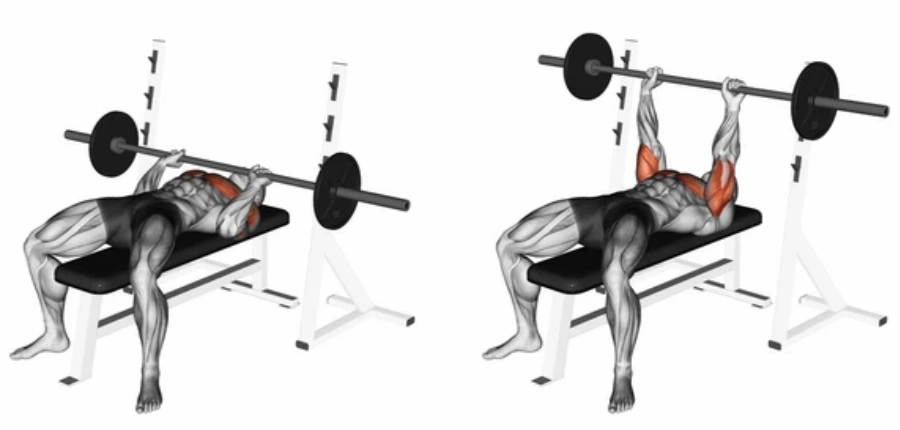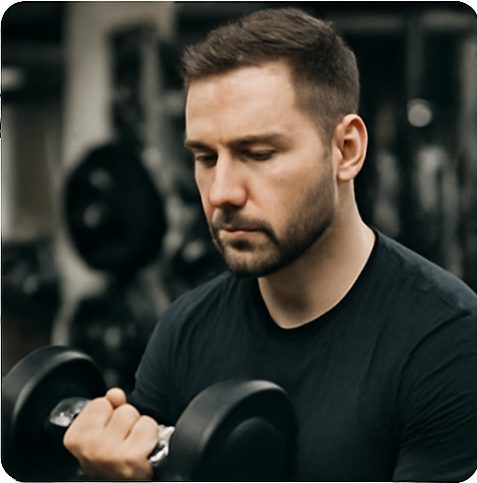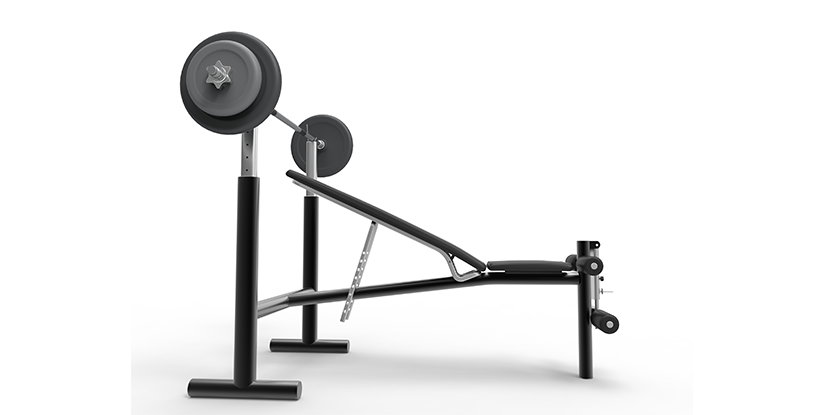The first time I hit a 50 kg bench press, I was 14, barely filling out my gym tee, and honestly? I had no idea if that was decent or just sad. I felt strong for a second—then I looked around the gym and saw guys tossing around 80s like toys.
Anyway, I started wondering if 50 kg was anything to be proud of. So, like any confused teen, I even bugged a few older lifters at the gym. Everyone had an opinion—some helpful, some just flexing.
That’s where this story starts. Because what I found out changed how I look at numbers like that.
Is 50 kg Hard to Bench? Depends.
Not gonna lie—when I first benched 50 kg, that bar felt crazy heavy. Like, I legit thought I was maxing out, even though I wasn’t. Like, real heavy. But here’s what I’ve learned since:
- For guys, benching 50 kg at 14 is a solid starting point. You’re not weak, you’re just early in the game.
- For girls, it’s actually super impressive. Most won’t touch that weight at that age.
- And even for adults who’ve never lifted? That’s still a decent load. Definitely not “beginner-light.”
So yeah, 50 kg isn’t elite, but let’s be real—it’s far from weak. Especially when you’re just getting started in a proper gym setting.
Bottom line: it’s a respectable lift if your form’s clean and you’re not ego-lifting.

What Affects Bench Press Strength?
After talking to coaches at the gym and lifting next to people way stronger than me, I realized 50 kg means different things for different folks. Here’s why:
- Bodyweight matters. Heavier lifters usually push more weight. Physics is on their side.
- Experience counts. If you’ve trained before, 50 kg might feel light. But if you’re fresh to the bench? That’s solid.
- Gender plays a role. Testosterone makes a difference—no shame, just biology.
- Form changes everything. A tight setup can make 50 feel like 40. Bad form? Makes it feel like 80.
So yeah, the number doesn’t tell the whole story. There’s a lot under the hood that impacts how that bar moves.
Bench Press Standards: Where 50 kg Stands
I was super curious where my 50 kg bench landed compared to others my age. Anyways, I got curious. Did some snooping online, bugged a few folks at the gym—and here’s what I pieced together real quick:
| Age Group | Average Bench Press (kg) | 50 kg Bench Press Significance |
|---|---|---|
| 14-16 years | 25-35 kg | A 50 kg bench press is above average for this age group, indicating strength development and good training progress. |
| 18-29 years | 60-80 kg | A 50 kg bench press is considered a beginner to novice weight for most lifters in this age group. |
| 30-39 years | 75-100 kg | For males in this age range, 50 kg bench press is often considered an entry-level or early intermediate weight. |
| 40-49 years | 70-90 kg | A 50 kg bench press is still within reach, but lifters may need to focus more on consistency and recovery. |
| 50+ years | 60-80 kg | In this age group, a 50 kg bench press is impressive for many lifters, depending on training experience and health factors. |
So yeah—if you’re 14 and pressing 50 kg, you’re right in the intermediate zone for guys. For girls? That’s actually pretty elite already.
Bottom line: you’re not weak. You’re not “just average.” You’re ahead of the curve—and that’s a solid place to be, especially in a busy gym setting where progress stands out.
What I’d Tell My Younger Self Now
If I could go back and talk to my 14-year-old self racking up that 50 kg bench press? I’d say:
Don’t freak out about the number. Seriously.
Instead—dial in your form, eat like you mean it, and just keep showing up. That’s the real game-changer.
Back then, 50 kg felt huge. And honestly, it was for me at the time. But now I know—it was just the beginning. Strength stacks up fast when you train smart and stay patient.
So if you’re there now? Enjoy it. You’re already ahead. Just keep pressing forward—literally.
No need to stress—just show up, lift smart, and trust the process. That 50 kg bench? Honestly, that’s no fluff—it’s straight-up progress, especially if you’re fresh in the game and just now findin’ your groove.
FAQs about 50 kg Bench Press
Whether a 50 kg bench press is considered good largely depends on several factors including your age, gender, body weight, and level of fitness experience. For individuals who are new to weightlifting or who have a lower body weight, bench pressing 50 kg can be a solid starting point and a commendable accomplishment. For example, a beginner male lifter weighing around 60-70 kg might find 50 kg to be a challenging yet attainable goal. However, for more seasoned lifters, or for those with higher body weights, 50 kg might be viewed as a warm-up weight. It’s essential to remember that strength training is a highly personal journey; what is most important is to continuously strive for personal progress while maintaining proper form and avoiding injury. Safety should always be the priority, and working with a certified trainer can provide guidance tailored to individual needs.
The amount a 60 kg man can bench press can vary significantly based on his level of training and physical fitness. For those new to weightlifting, aiming to lift around 40-50% of their body weight is typically a good baseline, translating to about 24-30 kg. As they progress to an intermediate level, they might be able to bench press closer to their body weight, which is around 60 kg. Advanced lifters, on the other hand, might bench press 1.5 to 2 times their body weight, meaning they could potentially lift between 90 to 120 kg. These are general guidelines and actual performance can vary. It’s crucial to build up gradually and focus on proper technique to prevent injuries. Individual progression will differ, and personalization through a structured training plan is recommended to safely achieve bench pressing goals.
Details about Tiger Woods’ maximum bench press are not readily available in the public domain, as specific numbers have not been extensively documented. Known primarily as a professional golfer, Tiger Woods is recognized for his exceptional fitness regimen designed to enhance his performance on the golf course. His training likely emphasizes a balance of strength, flexibility, stability, and endurance rather than focusing solely on maximum lifts like a bench press. Strength training for golfers typically aims to optimize their power and injury resistance while maintaining agility and rotational flexibility. While anecdotes and speculations may circulate, accurate information on his max bench press would only be reliable if provided by Woods himself or through credible sources associated with his training routines.
Whether lifting 50 kg is considered good can vary based on the specific exercise and the individual performing it. For exercises such as the squat or deadlift, 50 kg might be a starting point for many beginners, but it is substantial enough to offer a solid training stimulus. For upper body exercises like the overhead press or bicep curl, 50 kg represents a significant amount of weight that requires considerable strength. Evaluating the adequacy of lifting 50 kg should take into account the person’s fitness goals, body weight, and experience with weight training. It’s crucial to pursue gradual improvements and ensure that increments in weight are matched with proper form and technique. Consulting a fitness professional can help tailor a strength training program to one’s unique abilities and objectives, ensuring progress is made safely and effectively.

Hi, I’m the editor here at Leadman Fitness. We’re a manufacturer focused on producing top-quality barbells, plates, kettlebells, dumbbells, and strength training gear. I’ve been into sports and fitness for years, and I know my way around all kinds of gym equipment—both from using it and helping create it.
I spend a lot of time understanding the real problems people run into in the gym—whether it’s beginners trying to pick the right gear or experienced lifters looking for something more durable. I stay in close touch with our production team and talk directly with other equipment makers, so we’re always improving based on what real lifters and coaches are looking for.
What I share comes from hands-on experience—stuff that actually helps people train better, not just in theory, but in real gyms.
